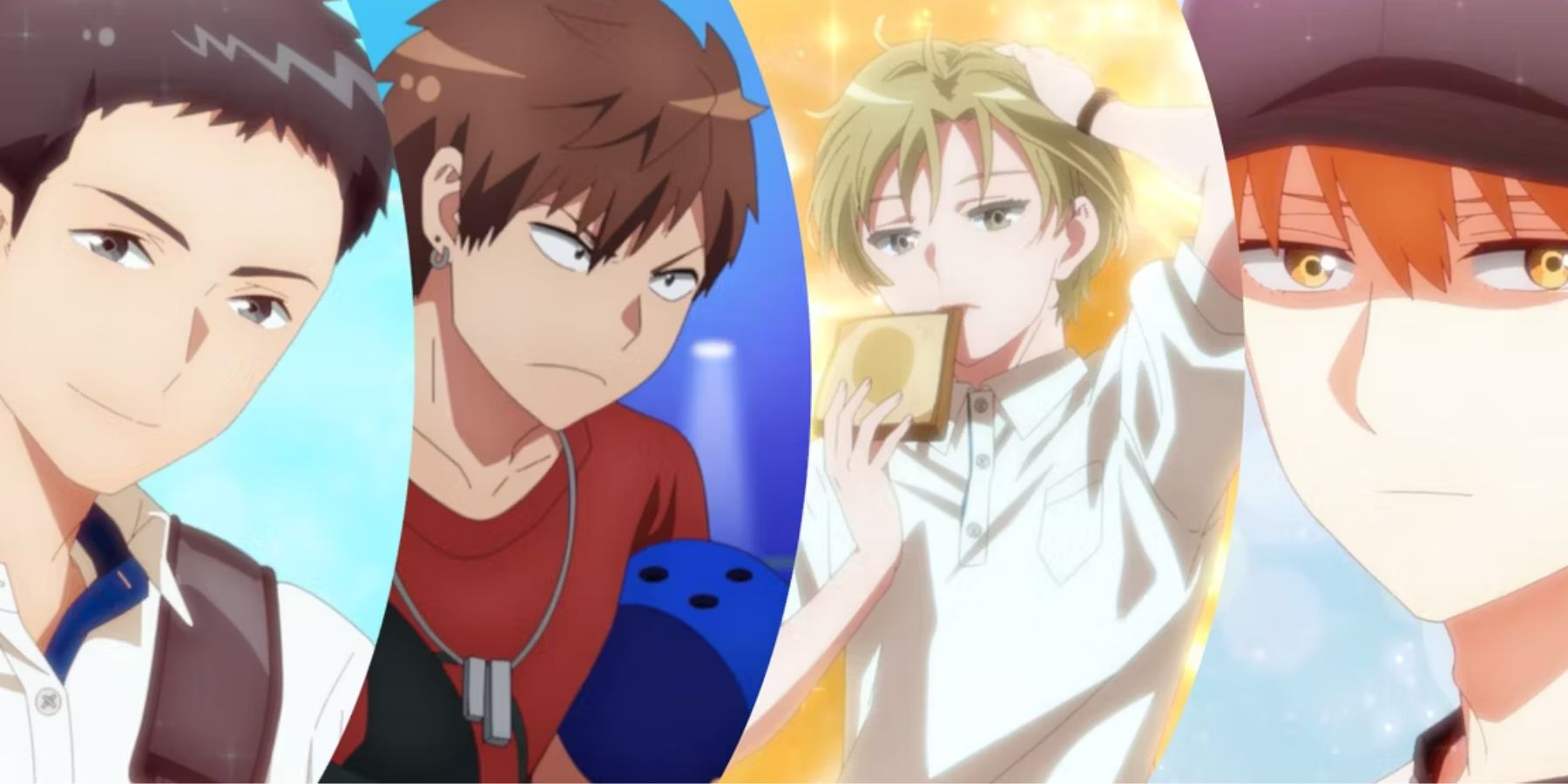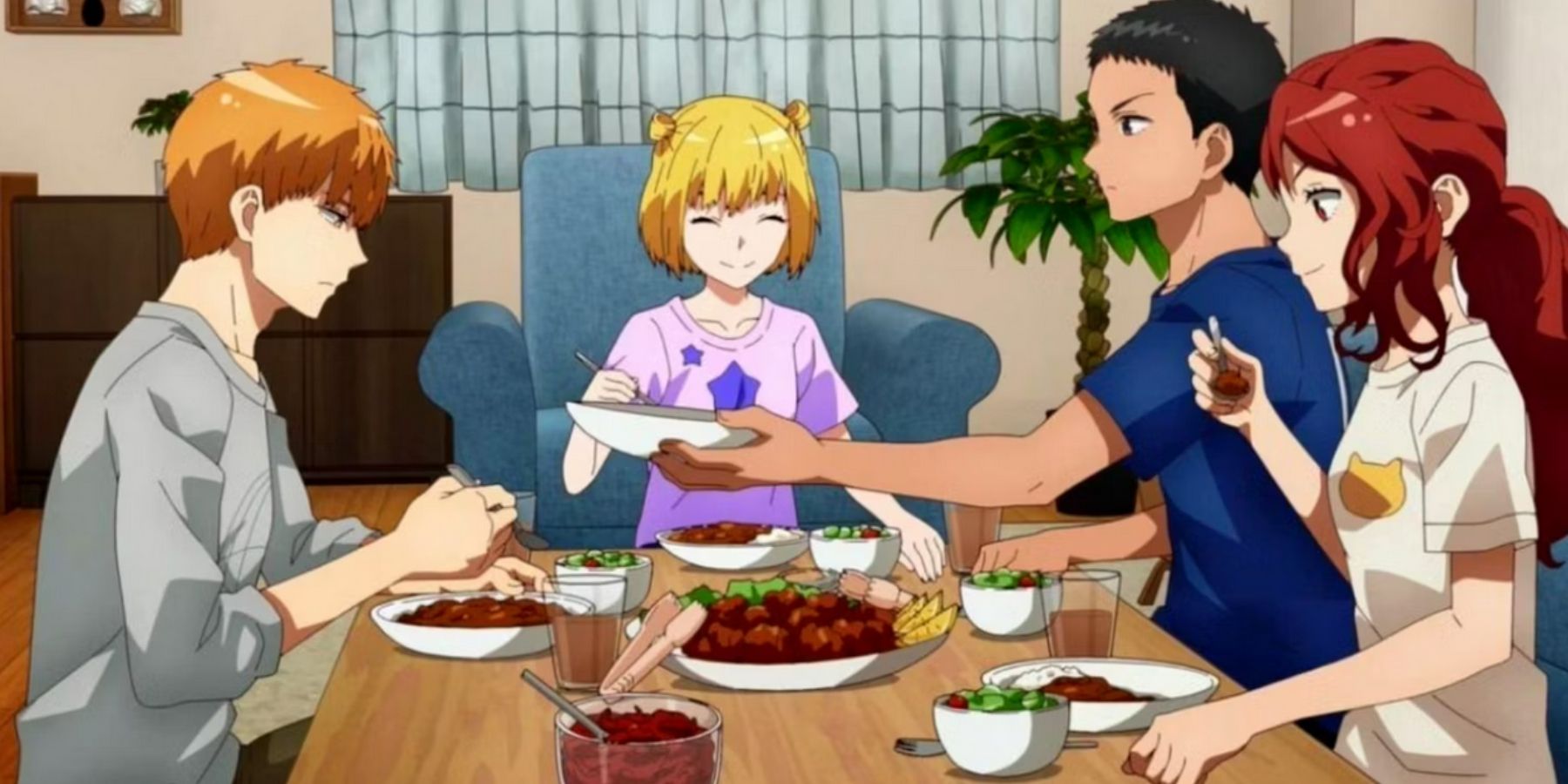
With an anti-romance main character, does Romantic Killer end up promoting romance?
Despite its cynical twists and turns or because of them, with the development of very important events, and powerful messages, does Romantic Killer end up promoting romance even though Anzu tries to avoid it at all costs? Anzu was happy with her life when she is suddenly chosen as the first guinea pig for a real-life version of an otome game, allegedly to help increase the population of Japan.
Why should she or any woman anyway have to fall in love for the sake of Japan’s future? Everything seems extremely unfair since a person should be free to find love and decide by themselves matters regarding their love lives.
Running From Romance Just To Find It?
From start to finish, Anzu keeps avoiding falling in love and being caught in the romance trap, always wishing for her three passions to be returned to her. At the end of the anime run of 12 episodes, she is not particularly in love with anyone yet.
Despite that, it can be argued that Romantic Killer does not kill the probability of romance. The people who started this adventure together have grown a lot, and the plot and the script choices make it clear that romance is not to be avoided, but love has to be earned.
Subverting The “Teenagers In Love” Trope
While most romance anime focus on the trials and tribulations of teenagers in love, Romantic Killer diverts the spotlight from this trope and emphasizes that human beings need connections, and that can be achieved through friendship, not necessarily romantic love.
Romantic Killer also takes the “childhood friends” trope and adds one more cynical twist to the story. Another instance is the use of both a tsundere and a yandere for plot purposes, and not to serve the purpose of having the main character finally fall in love with one of the guys.
And what about the guys? Romantic Killer also plays with the inverted harem with the ikemen. However, instead of fighting for the girl, and being turned into “real men”, these characters develop emotional connections that are not dictated by physical attraction. Also, since the magical girl cannot manipulate feelings, what the characters have is real, and not the result of magic. That is, no forced feelings at all.
With the rarest exceptions (and not counting on yaoi and/or yuri, which are specific niched genres that have their own tropes), such as Yuri!!! On Ice, all romance is heterosexual. It seems not to be different in Romantic Killer… but it actually is. Even though Riri “herself” states that Anzu should fall in love with a man for the alleged sake of Japan, Riri can turn into a girl and a boy. And she/he is one of Anzu’s possible love interests.
Also, when Tsukasa’s beautiful sister appears, Anzu comments on the possibility of falling in love with her. Subtle elements, but they open at least a crack on the door toward endless possibilities. It could be seen as queerbaiting, but this might not be the case, since Romantic Killer breaks a lot of gender stereotypes. Therefore, even if it is not completely knocked down, anime’s relentless and insidious heteronormativity is at least poked at in this one.
Romantic Killer can be considered a mix of slice-of-life and rom-com anime, the ending of which leaves an array of possibilities for the characters’ futures. Even if there is no second season, the anime has already established that rules can be broken since Riri, the magical girl herself, was the first to break them, and even managed to give Anzu her three passions back. Her original passions had been taken and replaced by possible love interests.
Anyway, in the end, with or without romance, the story as it unfolds establishes that there are other types of love, that a person does not need to be with a love interest to feel fulfilled in life. Friendship and companionship are extremely important, and can be as satisfying or even more satisfying than romantic love. And also, the basis from which love might be born, as is the case with Tsukasa, that ends up falling in love with Anzu because he gets to know her better, he feels and acknowledges how supportive and an awesome friend she is.
Even though some characters are indeed in love, they do not live for the object of their feelings, they have actual lives. In the end, everybody in the main character’s circle has grown up, some of them after facing the direst circumstances, and they are thriving, not using the main character as a bridge for that; instead, getting support from her and giving her support as well, as friends should do.
When the viewer gets to know more about Anzu’s best female friend, Saki, it is shown that, despite being a popular girl, she has her own issues and also wants romance to happen, if it happens, naturally, and not forced or according to what society expects from her.
In addition to that, being friend-zoned is not something that destroys either Tsukasa or Junta, thus reinforcing the message that friendship is important, that friendship is essential in a person’s life, and that they do not start fighting because of the object of their love. Another trope is subverted here: two romantic leads end up living together with their love interest, but no weird situation is caused by any of them. The trio ends up living together, and they respect each other all the time.
The living-together trope tends to be used to cause hilarious and/or romantic situations; however, in Romantic Killer, the circumstances that lead to Anzu living with Tsukasa and Junta are absurd, to the point of seeming surreal, but they open even more room for character development.
Even if the premise is to forcefully find love, which is terrible per se, Romantic Killer subverts and criticizes that, and all of the main characters end up finding self-love, acceptance, and a cozy group of supportive friends who can grow up and have fun together, not letting romantic feelings dictate what they will do or who they are, but having true personalities.
Romantic Killer, with its take on genders, self-expression, and relationships, feels distinctively modern and this is much welcome. So, even if the conclusion is left in the open, this is a pro-romance anime, which does not promote meant-to-be or forced romances, but the ones that need to be nurtured, and not become the obsessive focus of a person’s life. This message is further reinforced by the suggested choice of the second guinea pig for the game.
Love does not concern romance only, and it should not be limited to that. There are all kinds of love, and different types of connections, but first people must get to know and love themselves, and then, if they want to, they can become involved with someone else.
Source-gamerant
In Other Anime- Dr. Stone Season 3 Set to Release Spring 2023
The long-awaited third season of Dr. Stone finally has a release window fans can look forward to.
The story will kick off after the special 54-minute long Dr. Stone: Ryusui that served as an introduction for this new character that will play a very important role moving forward. Learn more






